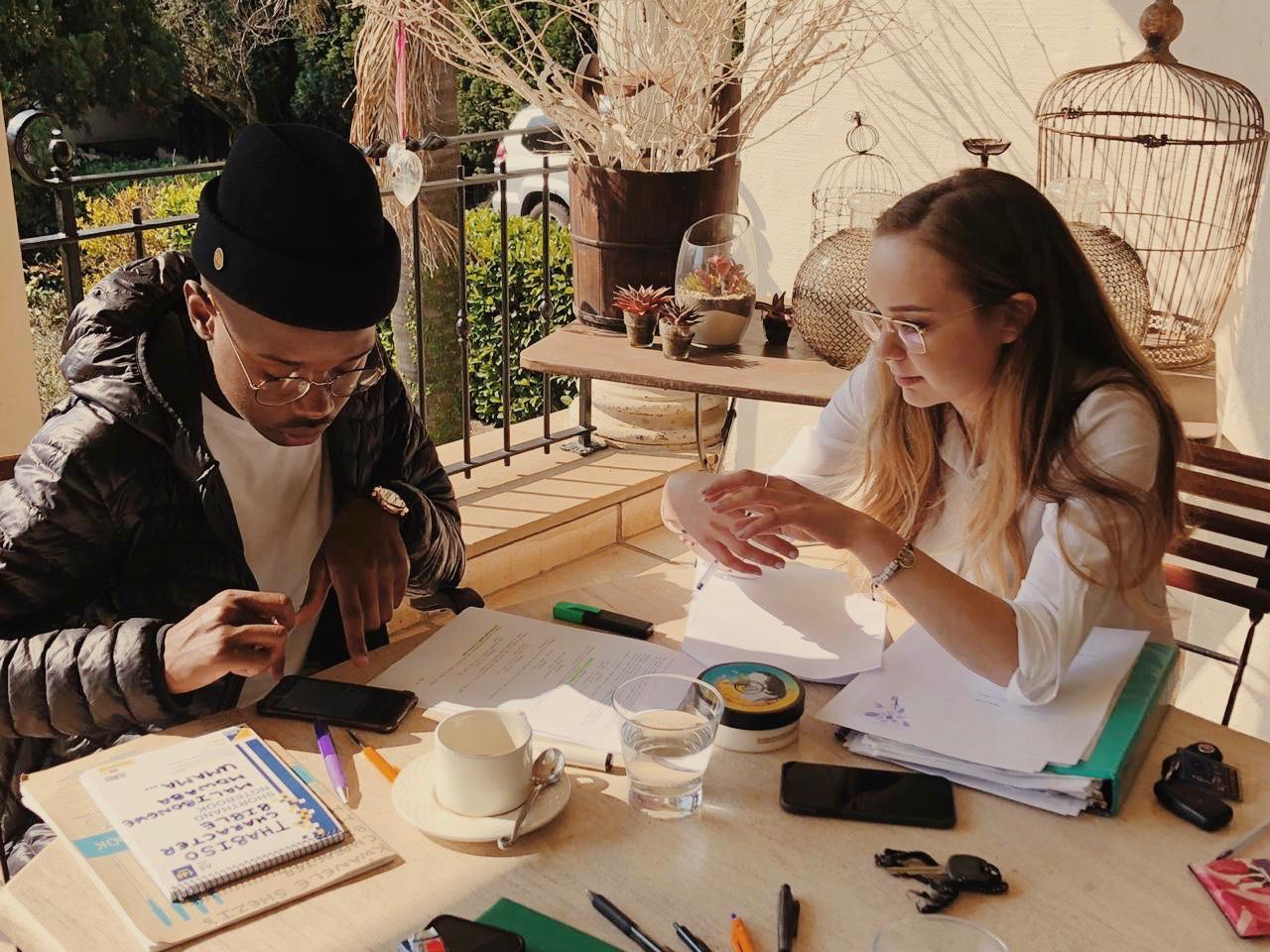
Featured Item

Ode to domestic worker strikes global gold award
When legendary film director Spike Lee told Talia Smith that her film had scooped gold at the prestigious 2020 Student Academy Awards, her heart dropped to her toes in an instant.
“I logged onto Zoom, and was told that someone was going to speak to me,” the 24-year-old Smith told the SA Jewish Report this week. “It turned out to be Spike Lee. I felt frozen and unsure whether to cry or try to form words. He told me that I’d won gold, and I was left shaking for two days after that.”
Smith, originally from Johannesburg and an alumnus of King David Linksfield (KDL), produced her short film, Umama, last year while studying at New York University (NYU) in the United States. When the SA Jewish Report last spoke to this film fundi in March 2019, she was trying to raise the funds needed to produce her film, one of only a select few scripts NYU chose for production.
It’s been a surreal experience since then. Smith’s recent accolade is a crowning achievement after months of filming, production, and editing, with a committed team in America and South Africa for months on end.
“We received a lot of donations from so many incredible people, and were ready to go in May 2019,” Smith recounts. “KDL and Holy Rosary schools helped as well by offering us locations on their campuses for filming, Pick n Pay Norwood and Krunch offered to cater for the team, and we were set to go.”
Filming began in June last year, managed by a 35-strong crew including five individuals from NYU along with a number of collaborating South Africans, as well as a cast of 10 actors.
The whole process was a dream come true for Smith, having dreamed of directing an Oscar-worthy film since the age of eight.
“Every day, I’d look out on the people there, the cars parked outside, and tried to believe that a single idea had come to fruition,” she says. “These people were giving their time and helping me to share a message. They wanted to be part of the story.”
A cinematic ode to Susan Sentsho, the woman who helped raise Smith and her siblings, Umama tells the story of a woman whose job is to “look after children that aren’t her own, but whose choice is to love them like they are”. Although a personal narrative, Smith blended the story with certain universal elements, aiming to illustrate a reality lived by countless personalities like Sentsho in South Africa.
“I didn’t want it to be just about us,” she says. “Much of the film is inspired by actual events in my life, but its story is one many South Africans share. Susan and I discussed this a lot, revising the script so that we didn’t follow only the narrative of her own son, Thabiso.
“Thabiso’s storyline was created from an amalgamation of interviews with the children of domestic workers. It was important for us to detach ourselves so that we could ensure that this was a story for all South Africans, not just us.”
Smith worked closely with her remarkable team to bring the story to life, with the film being produced by Nora Zubizarreta and starring local talent Malibongwe Mdwaba and even Black Panther star Connie Chiume. Together, the cast and crew breathed life into a narrative that was personal and universal.
“There was a moment when Susan spoke to some of the crew and cast, and she showed them photos of her son, which she admitted she hadn’t really looked at for a long time,” Smith says. “From that moment, we all knew we had a real responsibility to tell the story in the right way.
“She motivated us to do the film justice not just for accolades, but for those who have a share in this story.”
The project completely exceeded Smith’s expectations.
“I couldn’t believe how good a job the actors did in portraying what I’d written. They were perfect for their roles, and I watched them without really wanting to tamper with their performance in any way. They were genuine and incredible.”
Sentsho was equally thrilled.
“Susan was so happy,” says Smith. “She starred as an extra in the film, and was so excited that Chiume was playing her. She watched everything with a big smile on her face, and together, we watched scenes that we remembered having experienced ourselves. It meant a lot to us both.”
After shooting, postproduction wrapped up at the end of 2019, after which the film was submitted to numerous film festivals, coming second at the NYU First Run film festival. In spite of Smith’s initial anxiety, Umama garnered rave reviews, landing a semi-finalist spot at the Student Academy Awards before going on to take gold in September as a finalist entry.
“It was a dream come true,” says Smith. “Everything was held online in September, and Umama was one of the eight finalists. I felt ready, and suddenly, Spike Lee came on and told me I’d taken gold like an Olympic champion. It took me a moment to register what he’d said.”
The awards were publicised only on 21 October, and while Smith knew she had won gold, she anxiously awaited the broadcast of the award ceremony to confirm that she hadn’t been dreaming.
“I was so anxious that I had heard wrong,” she laughs. “Although my family also knew I’d won, I had to keep it quiet for a month. It was nerve-wracking.
“We were all astounded. Susan also watched the whole ceremony, and she and I spoke afterwards. She was so happy.”
Smith hopes her accomplishment paves the way for other local talent to leave a mark on the international film arena.
“This recognition makes me feel that there is a place for South Africa’s stories to be told and that people want to hear them,” she says. “We need to tell our stories, and we have the talent to make sure they get told properly.”










